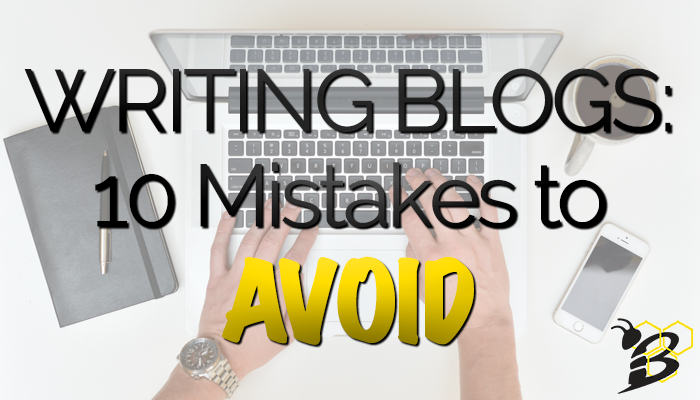1. Not understanding the purpose
One of the big mistakes that we see businesses make when they start blogging is making the blog all about themselves. Only talking about their new products, features, accomplishments, etc. I say this with all the love in the world...WHO CARES? This is not the purpose of a blog. A successful blog should be educational, informational, and interesting to your readers. It's important to understand the difference between a blog and a sales pitch...they're NOT the same.
2. Not doing your research
Blogging for the sake of blogging is not going to do you much good. There is definitely some research that you need to do before starting your blog and before writing each individual post. Things to research include:
- Keyword research
Competition & monthly search volume - which keyword(s) will you focus on for each post? - Your Audience/Personas
- Links to other reputable sources
- TOFU, MOFU or BOFU
Is the content going to be Top, Middle or Bottom of the sales funnel content?
3. Grammar & Spelling
Please, PLEASE take this seriously. Writing blogs without double and triple checking your work is a great way to lose credibility. We always recommend more than one person read each blog post and give feedback before posting. It's important to get a second set of eyes on every piece of content that goes out from your brand. One post going out with grammar or spelling issues can ruin your reputation with your readers.
4. Not writing compelling titles
It's important to create compelling titles that people will engage your readers to read more. There are going to be people looking at your titles determining if they want to read more than a snippet. Without an interesting title, they will likely just scroll past. Your title should also include your focus keyword(s) and be less than 70 characters.
PRO TIP: Having trouble coming up with a good title or topic? Check out HubSpot's Blog Title Generator!
5. Sacrificing SEO to be clever
Creating compelling and clever blog titles can be a big asset, but sacrificing SEO friendly keyword-rich titles for the sake of being clever is actually a big mistake. If no one can find your blog, it doesn't do you any good to be clever.
6. Trying to handle it alone
Creating a successful blog takes time and effort. You may think you can do it alone when you get started, but what happens when you go on vacation, have a hectic week, get sick, or an unexpected problem arises? You end up skipping your blog. We recommend recruiting a few good writers from your team to join in and set goals for the number of blog posts going out each week. We recommend posting two blog posts per week. If something arises and you can't write one week, you have others that can pick up the slack.
7. Inconsistency and lack of commitment
Set goals for the number of posts you'll put out each week and stick to them. Search engines and your followers love a consistent blog. We ALWAYS recommend having some sort of content calendar. It will keep you on track with your goals and ensure that you never miss a post or cheat your followers. It's also important to treat blogging as a vital element to your business. Schedule time, set reminders, lock yourself in your office - whatever you have to do to follow through each week, do it.
8. Sacrificing quality for quantity
The last few points we talked about quantity, but quantity without quality is just a waste of everyone's time. Putting out short, uninteresting posts is a great way to lose followers, credibility, and respect. NEVER put out blog posts just for the sake of putting out a blog post. Make it worth the time it takes to read.
9. Not having a marketing plan
Just having a blog is not a marketing plan. You have to market your blog posts in order to gain followers, readers, and gain authority. Set a plan of how you'll share your content through social media, email, workflows and any other tactic you use to reach your customers.
10. Not utilizing a call-to-action
So you're putting out great content consistently and have gained plenty of readers and even high keyword ranks. That's all great, but who is reading your posts? What do you know about them? Once your blog post is finished, give your readers an opportunity to become a lead for your business with a relevant call-to-action at the end of each blog post.
Blogging is not an easy task. It requires time, effort, planning, and organization, but if you follow through, blogging can become a great asset to your marketing. Starting a blog is not as simple as turning on your computer and typing away. Don't fall into these common traps that new businesses and bloggers fall into.



.png?width=100&height=100&name=HubSpot%20for%20K%E2%80%9312%20Education%20How%20Schools%20Use%20HubSpot%20to%20Improve%20Enrollment%20(and%20How%20to%20Set%20It%20Up).png)
.png?width=100&height=100&name=The%20Complete%20Guide%20to%20HubSpots%20Prospecting%20Agent%20(2025%20Edition).png)
